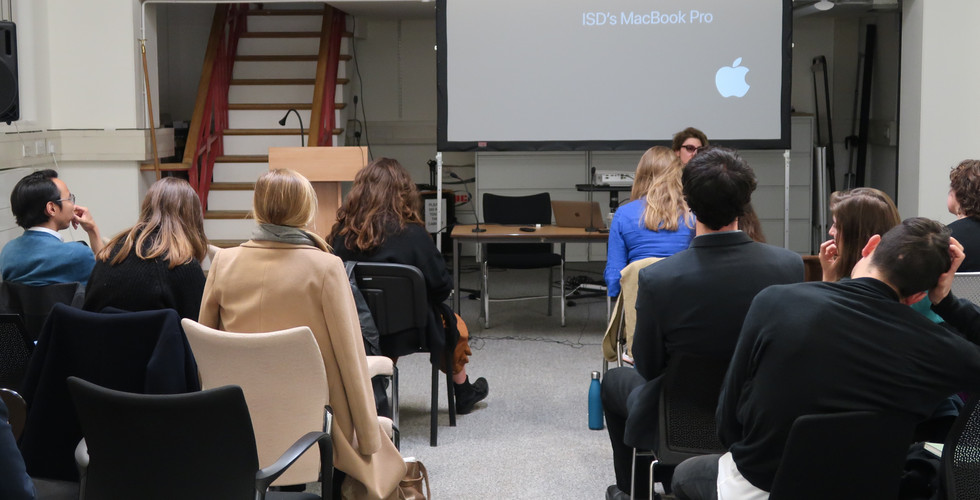PPV #2: The Universality of Culture
- Michał Murawski
- Nov 2, 2018
- 3 min read
Updated: Jul 5, 2019
2.11.2018, UCL IAS. 6pm-8pm.
The Universality of Culture: Totalitarianism or Emancipation?
A talk by Keti Chukhrov
🥒🥒🥒
Un-edited audio recording available here.

Culture has long been accused of not living up to expectations of novelty in art, science and theory. Modernism and the avant-garde treated culture as a civilizational homeostasis and an obstacle to any dynamic artistic process, development of thought, or revolutionary political agency.
In Freud’s programmatic text “Civilization and its Discontents” (1930), culture is defined as a universalizing institution of constraint, which inhibits desire, psychical drives and sexuality. In post-structuralism (Lacan, Deleuze, Guattari, Derrida, Foucault) a ferocious criticism of culture is complemented with the critique of language and its metaphysical dimension; culture is regarded as an obstacle hampering the access to the unthinkable, the ineffable, to the Real - i.e. access to something truly material that can only produce the conditions for political or creative subversion.
In post and de-colonial critique, culture as a universal category is seen as a tool of colonial and class domination dispersing into a multiplicity of subcultures and identitarian habits. This counter-universalist critique is, interestingly, perfectly inscribed into the quasi-democratic illusions of both critical theory and the pop-industry.
In Soviet aesthetics, philosophy or psychology (E. Ilyenkov, L. Vygotsky, A. Leontyev) we encounter a converse treatment of both the issue of culture as well as of language. Culture is seen as a generic form of labor that deals with timeless and non-localized human activity; it is possessed of the capability to exceed any confrontation between the old and the new. The talk will inquire into the paradoxes of such an idealist perspective on cultural universality.
🥒🥒🥒
Keti Chukhrov is an associate professor at the Department of Сultural Studies at the National Research University Higher School of Economics, Moscow. In 2012-2017 she has been the head of Theory and Research department at the National Center of Contemporary Art, Moscow. Chukhrov has authored numerous texts on art theory, culture, politics, and philosophy. Her postdoctoral dissertation dealt with the anthropology and ontology of performativity. Her full-length books include: To Be—To Perform. ‘Theatre’ in Philosophic Critique of Art (Saint Petersburg: European University, 2011), and Pound &£ (Logos, 1999) and a volume of dramatic writing: Just Humans (2010).
Currently she is a Marie Skłodowska-Curie Fellow at The University of Wolverhampton. Her present research interests and publications deal with: the impact of the Soviet economy on the ethical epistemes of historical socialism; performance studies; and neo-humanism in the conditions of post-human theory. With her video-play “Love-machines” she participated at the Bergen Assembly and “Specters of Communism” (James Gallery, CUNY, NY, 2015). Her Latest video-play “Communion” was in the program of the Kansk video film festival (Moscow, 2016) and at the Ljubljana Triennial U-3 “Beyond the Globe (2016, curated by Boris Groys).
🥒🥒🥒
SUMMARY
Power Vertical #2 took place last Friday evening at UCL Institute of Advanced Studies. Art theorist and philosopher Keti Chukhrov, Associate Professor at Moscow's Higher School of Economics, gave a thought-provoking, thoughtful and provocative talk on the aesthetics and political economy of cultural universality. For Evald Ilyenkov and other post-war Soviet philosophers and pedagogues, the haptic and the affective realms were not pre-social or extra-social; they were an inherent part of social life already, they were forms of labour and - crucially - they were de-privatised and commonly-owned, Keti argued.
A few pictures from the talk are below, and you can find an un-edited audio recording of the talk and discussion here: http://bit.ly/chukhrovuniversality
The film, from which Keti showed an excerpt - Talking Hands by Swedish artist Emanuel Almborg - examines the school for deaf and blind children established by Ilyenkov in Zagorsk in the 1960s. You can find a short excerpt here: https://vimeo.com/180045176
Many thanks to UCL SSEES and The Centre for the Study of Contemporary Art (UCL Art History) for support and propagation.





























Comments